From going bald to losing muscle or having no more friends — there are a lot of rumors about what happens if you go vegan.
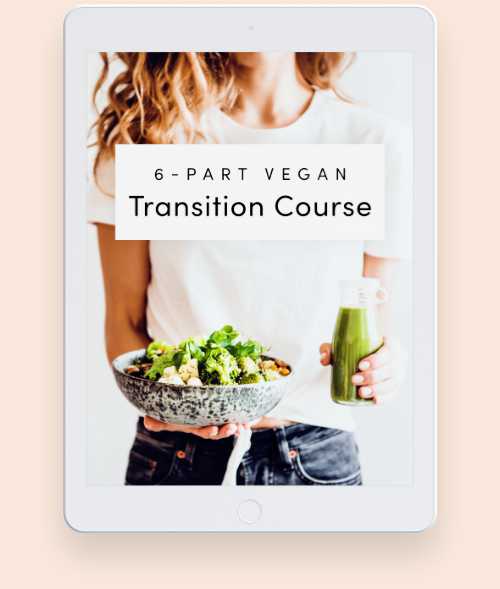
join our free vegan course!
Learn how to thrive on a plant-based diet with practical tips & a 3-day meal plan!
But which of these side effects can honestly be expected? And what can you do about them?
This article covers the most common problems people experience when going vegan and offers helpful tips and free guides to deal with them.
There are so many good reasons to go vegan, and if you know how to do it well, you’ll fall in love with this lifestyle in no time!
Possible side effects of going vegan
Nutrition education
Every healthy diet needs to be well-planned. This is true for plant-based diets as well as for any other!
The American Dietetic Association states that “vegan diets are healthful, nutritionally adequate, and may provide health benefits in the prevention and treatment of certain diseases.”
But this is only true if you know how to cover your nutritional needs! So, you need to educate yourself.
Solution
Eat from all vegan food groups: fruits, veggies, (whole) grains, legumes, nuts and seeds. Take a B12 supplement and check our full vegan nutrition guide here. Grab our printable nutrition sheets below if you like!
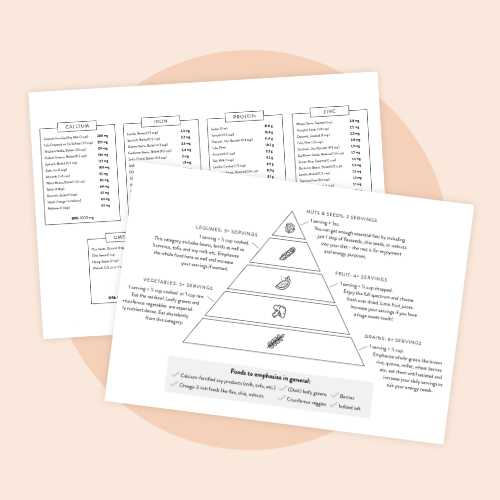
download our free vegan nutrition printables
Grab your free PDF and sign up for our newsletter by entering your email below!
Low energy
Do you feel like you’ve lost your spark or want to sleep all day? While this could have many reasons, it can be diet-related.
A vegan diet consists of many lower-calorie foods, such as fruits and veggies — it’s not uncommon for new vegans to unintentionally eat too few calories by loading up on healthy produce!
Animal-based foods are typically high in fat, low in water and devoid of fiber — all of which makes them rich in calories. These need to be replaced adequately!
Fatigue can be a sign of many things, including insufficient nutrient intake. If you cannot make out obvious reasons for being tired like too little sleep due to stress, investigate it further and seek professional help!
Solution
Low energy is usually due to eating too little. Focus on high-calorie foods, track your food intake over a few days and cover the basics like sleeping enough and reducing stress.
Weight loss
Unintended weight loss is no fun! If you notice that you cannot keep any weight on you since going vegan, remember that there are many calorie-packed foods like chips or chocolate that are vegan — so it’s not due to veganism per se.
Eating plant-based isn’t just about salads or smoothies, there are more vegan food groups to eat from!
Please consult a doctor once you’ve ensured that you eat enough throughout the day and are still losing weight!
Solution
Follow our guide on gaining weight on a vegan diet and choose from this selection of tasty high-calorie vegan meals. Don’t rely on fruits and veggies too much, have sandwiches, pasta, energy balls and more!

Weight gain
If you’ve been gaining weight since going vegan, this can be due to a couple of factors!
Perhaps you’re intrigued by all the new and exciting vegan foods like ice cream or veggie burgers.
Or you’ve read that you can eat as much as you want on a vegan diet without gaining a pound?
Unfortunately, that’s not the case. Especially if you’ve been eating refined carbs, food drenched in oil or heavy sauces, the calories can add up quickly!
Solution
Check out our plant-based weight loss guide or try these low-calorie recipes to learn how you can create delicious meals that support your weight goals.
Feeling hungry
Constantly feeling hungry and never really satisfied with their food is something new vegans may experience.
Follow a specific (restrictive) vegan diet, such as a low-carb or low-fat vegan diet can lead to decreased satiety in some people!
Jump back to the beginning of the article to learn about the nutrition basics of a plant-based diet and fill your plate with satiating starches, plant-based protein, healthy fats and veggies.
Solution
If you’re always hungry, eat more filling and fiber-rich foods! Combine them with creamy sauces and complex carbs to stay full for hours on end. Check out the links above about higher-calorie foods and meals!
Food cravings
Whenever we switch from one diet to another, we usually experience cravings. They are often just reminders of foods we were used to eating for a long time — and sometimes, we crave the foods we’re trying to avoid the most.
Make sure that you’re eating enough and covering basic nutritional needs by reading about plant-based nutrition.
You can also get in touch with your reasons for wanting to be vegan and ask yourself whether you’ve restricted your diet too much!
Nowadays, there are delicious vegan replacements for anything from pizza to donuts, ice cream, cheese and meat. Try some of them!
Solution
Understand these feelings better and know that they are only temporanry! To prevent cravings, eat enough, eat mindfully, make your food taste delicious and try vegan alternatives if you’re craving animal products.

Indigestion
Introducing new foods or eating patterns to our belly and gut bacteria can mean trouble!
From belly rumblings, gurglings or other signs of indigestion like flatulence, constipation or diarrhea, everyone reacts a bit differently.
It’s best to stay as close to your former eating patterns as possible when transitioning to a vegan diet and recreate your omnivorous or vegetarian diet in a vegan way before introducing lots of beans or broccoli!
Solution
A slow transition is key to keeping your digestion happy! Drink plenty of water as you increase the fiber in your diet, and cook your veggies and puree legumes if they are hard to digest. Read more about a low-fiber diet and bloating on a vegan diet!
Eating out
Following a fully vegan diet at home is one thing, but finding vegan food outside is a whole different story!
It definitely includes some research and planning — although, luckily, vegan options at most restaurant chains have become much more ubiquitous.
Bring your own food where it’s socially acceptable, check out vegan restaurants (browse Happy Cow) or do some online research before visiting a restaurant to see if they have vegan-friendly options.
Solution
Most restaurants can provide you with fully vegan meals if you just ask them — this also increases demand! Check the menu for a little (v) next to any meals, which often indicates that they are vegan. Offer to bring something to a party when invited!
Social challenges
Doing something that’s not mainstream can always lead to difficult social situations. People start questioning your decisions and feel the need to defend their diet and lifestyle.
But it’s totally possible to be vegan if your family is not or even become a vegan family together!
Find out how to talk to others about your lifestyle and find answers to common arguments here.
Solution
Stay calm and friendly when discussing your vegan diet. You can also let others know if you don’t want to talk about this subject — find specific tips for being vegan at cookouts or surviving the holidays as a vegan on our website!
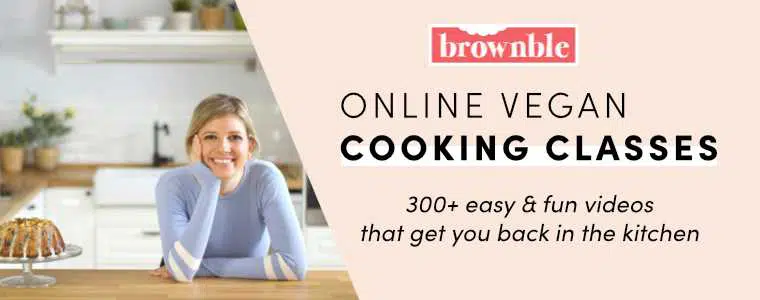
Cooking your own food
Are you used to just grabbing food outside of your home or buying frozen meals? Well, as a vegan, you typically have way fewer options.
Time to start cooking your own meals more often! This also helps if you’re on a budget, and you’ll discover many new flavors and foods that way.
Solution
Check out our vegan cooking guide here and browse these beginner-friendly vegan recipes that pretty much everyone can prepare! Having to cook your own food doesn’t have to be a downside — plus, restaurant options and convenience foods are growing each year.
Tips for going vegan
We want to help make your transition to veganism easy and fun! Check out the following steps.
- Learn why it’s a good idea to go vegan and keep your own reasons in mind.
- Decide on your pace: do you want to transition overnight or go step by step and more slowly?
- Check your mindset and reassure yourself that you can do this and that there is a delicious replacement for any animal-based food out there!
- Start with the easiest foods and keep your ultimate favorite non-vegan dishes for last. Replacing milk or yogurt is usually most approachable!
- Keep things fun and try delicious vegan food like edible cookie dough, burgers or chocolate ice cream.
- Veganize your favorite meals by making food swaps. That way you don’t need to miss out on anything!
- Take it one day at a time to avoid feeling overwhelmed and be okay with the fact that you might slip up here and there.
- Prepare and stock your kitchen with delicious vegan foods! Follow our vegan grocery list and get rid of as many non-vegan foods as you can.
- Choose a few easy vegan recipes and then plan out your week of dinners. Try to stick to your plan!
- Learn a few basics about plant-based nutrition but don’t overcomplicate things. Vegan meals can look very simple!
- Get blood work done to see what you need to supplement and get a cheap B12 vitamin.
- Reach out for support online or in your circle of friends or family! It’s always easier if you have someone else to lean on.
More vegan articles
- Vegan Staple Foods
- Food Combining Tips
- Vegan Ingredients Check
- Vegan Muscle Building
- What I Eat as a Vegan
Have you experienced any side effects after going vegan? Do any of them keep you from this lifestyle? Share with us in the comments and Pin this article here.



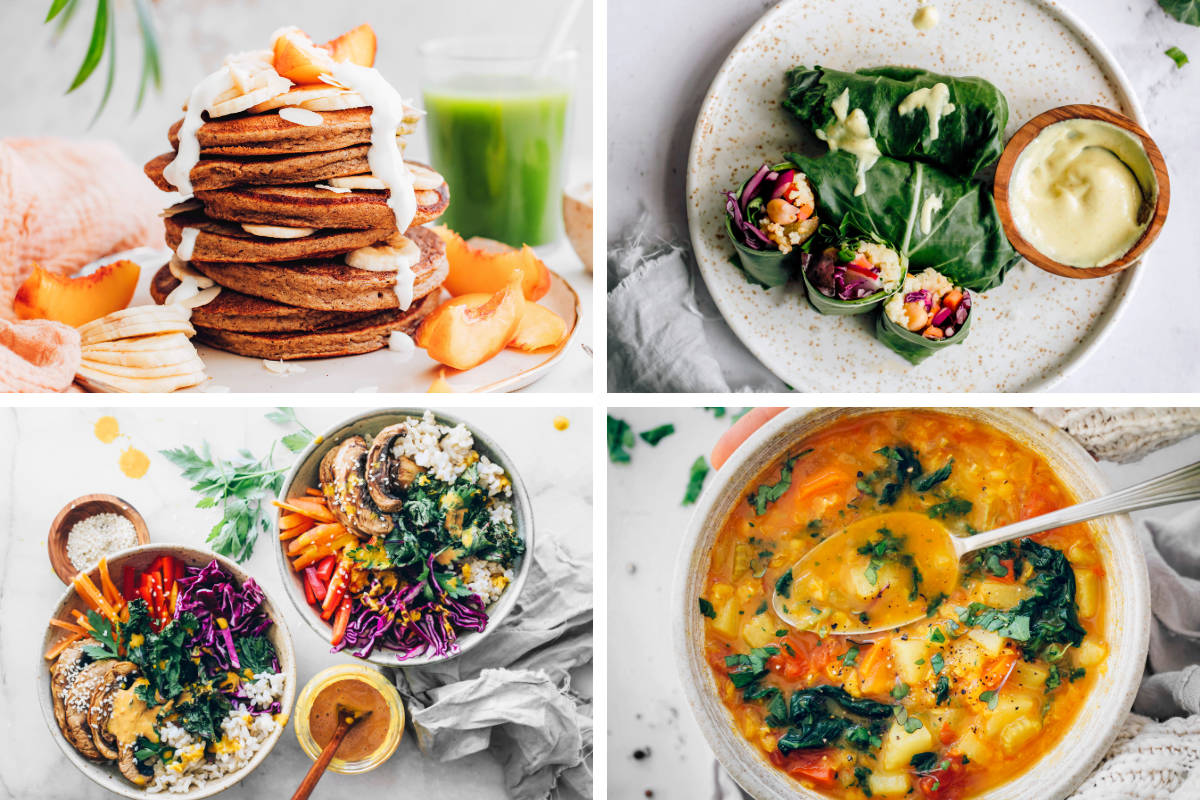
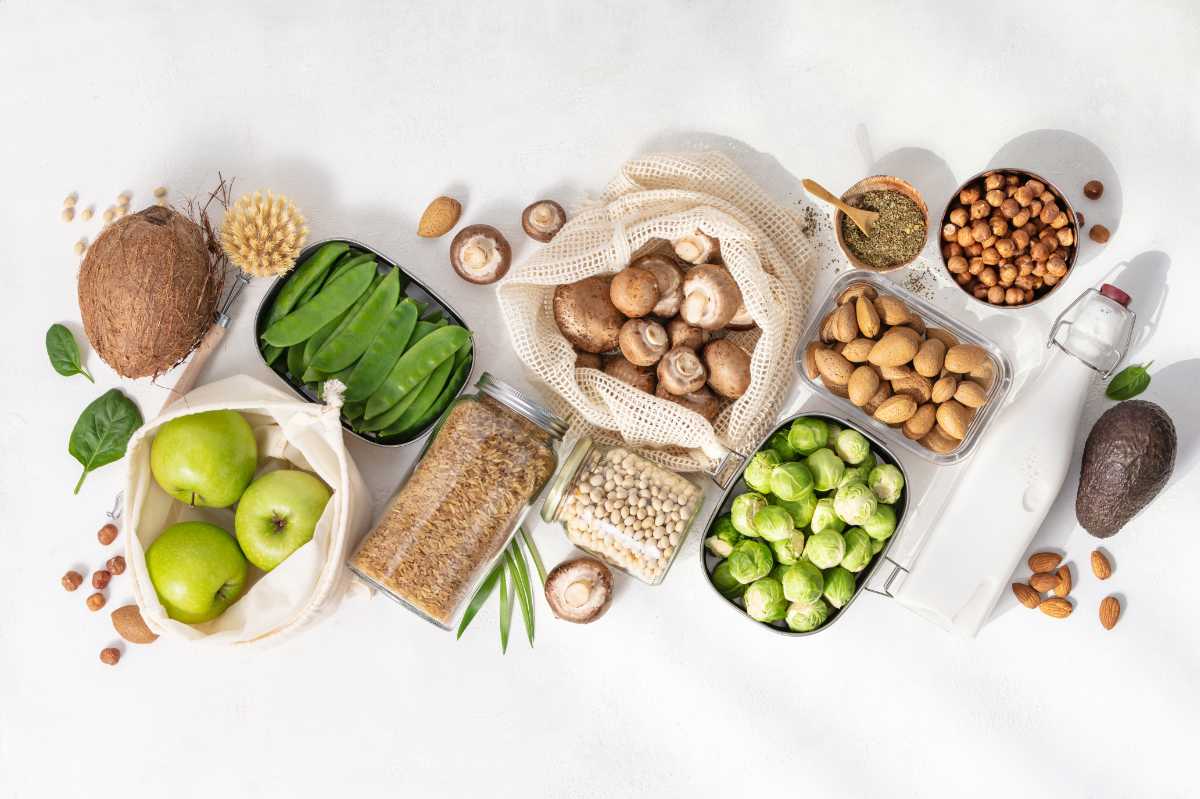

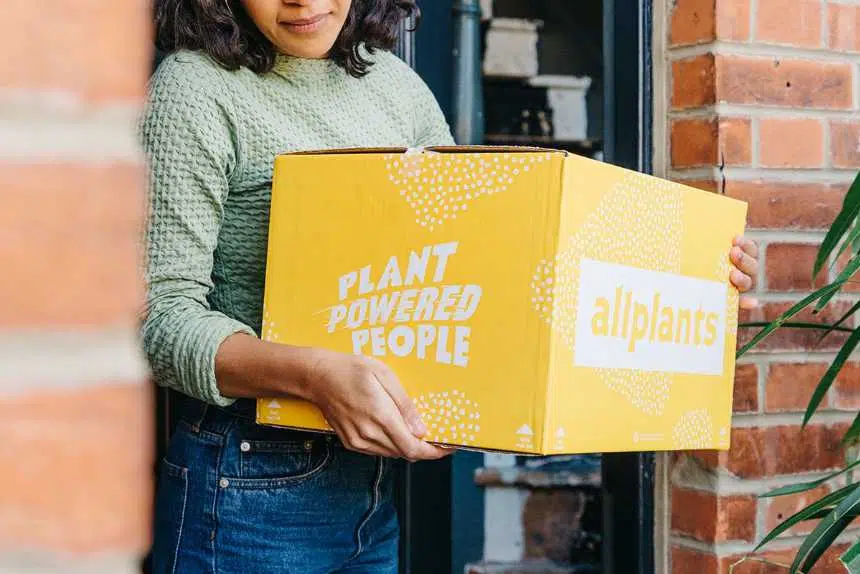
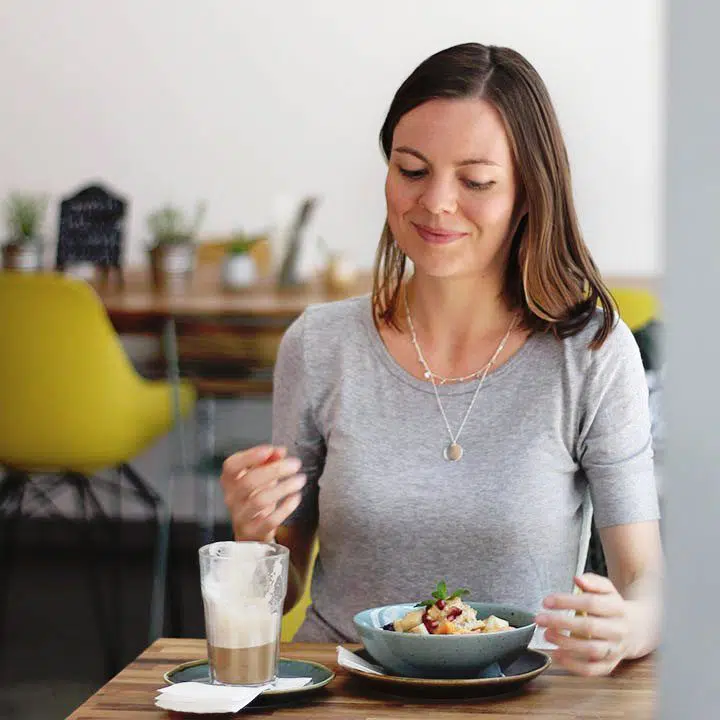
 Alena Schowalter is a Certified Vegan Nutritionist who has been a vegetarian since childhood and vegan since 2012. Together with her husband, she founded nutriciously in 2015 and has been guiding thousands of people through different transition stages towards a healthy plant-based diet. She’s received training in the fields of nutrition, music therapy and social work. Alena enjoys discussions around vegan ethics, walks through nature and creating new recipes.
Alena Schowalter is a Certified Vegan Nutritionist who has been a vegetarian since childhood and vegan since 2012. Together with her husband, she founded nutriciously in 2015 and has been guiding thousands of people through different transition stages towards a healthy plant-based diet. She’s received training in the fields of nutrition, music therapy and social work. Alena enjoys discussions around vegan ethics, walks through nature and creating new recipes.
Are you afraid of the side effects of going vegan? Here is what might happen if you switch your diet and lifestyle — and what to do about it.